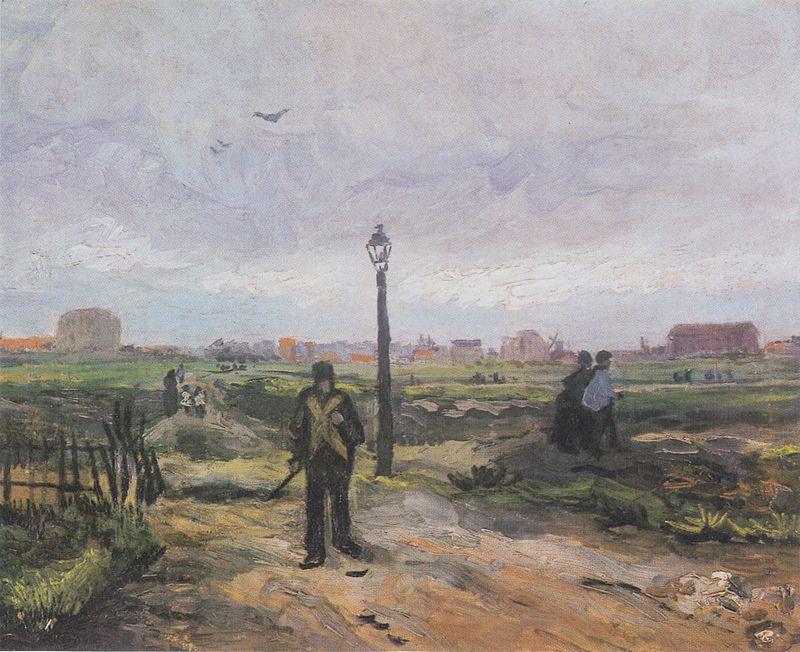Description
The painting "The Outskirts of Paris" by Vincent Van Gogh is a masterpiece depicting the beauty of nature and rural life in 19th century France. This work is a perfect example of the Post-Impressionist artistic style, characterized by the use of bright colors and the technique of short, visible brushstrokes.
The composition of the painting is impressive, as Van Gogh manages to capture the essence of rural life in 19th century France. The painting shows a country landscape with a road stretching towards the horizon, surrounded by trees and wheat fields. In the center of the painting, you can see a small country house, which represents the simple and humble life of the peasants.
The use of color in this painting is impressive. Van Gogh uses a bright and vibrant color palette, which gives the painting a sense of life and movement. Yellow and green tones are the most predominant, reflecting the beauty of nature and rural life.
The story behind this painting is fascinating. Van Gogh painted this work in 1887, during his stay in Paris. At the time, he was influenced by impressionism and was experimenting with different painting techniques. This painting was one of the first Van Gogh painted in his Post-Impressionist style, which would become his hallmark.
There are little-known aspects of this painting that make it even more interesting. For example, the small country house in the center of the painting is believed to be the same one that Van Gogh painted in his famous work "The Yellow House." Furthermore, it is known that Van Gogh painted this work in a single day, which shows his skill and talent as an artist.

